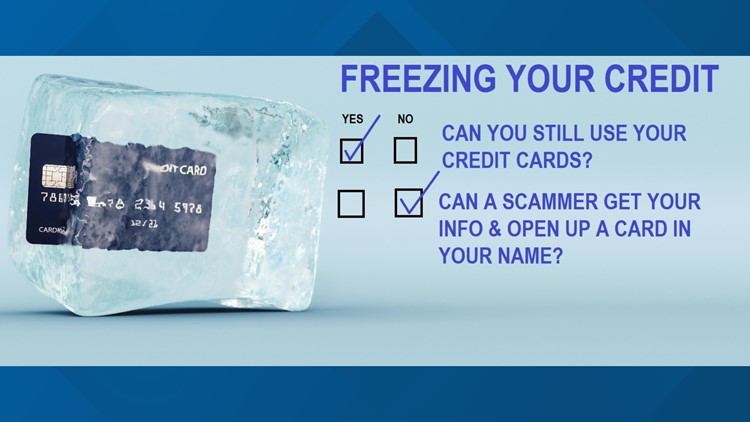GREENSBORO, N.C. — 2020 was a year most of us won’t soon forget. While many of us were working and going to school at home, cybercriminals were busy breaking into our accounts.
More than 150 million people had their personal information exposed last year, including passwords, phone numbers, and financial data.
Sometimes companies will contact you to let you know you’ve been the victim of a data breach. But you can also do some digging online yourself to find out if your information has been compromised. The website haveibeenpwned will tell you if it’s your email address, phone number, or password.
If your password was compromised, change it everywhere you used it. It’s a good idea not to reuse passwords. With a password manager, you don’t have to worry about remembering new ones because it does that for you. Consumer Reports recommends one called ONE-Password, which creates and stores complex, unique passwords for each of your accounts.
And because cybercriminals can use your personal information to try to log in to your accounts, use something called multifactor authentication, which requires a second form of identification to log in. Often it’s a code sent to your phone. But CR recommends using a form that’s more secure than that, like the Google Authenticator app or a hardware security key such as Yubikey.
If your Social Security number or financial information was part of a data breach, or if you want to make sure your identity is better protected, CR says that freezing your credit is a smart option because it restricts access to your credit history. You can still use your credit cards, but the scammers won't be able to open up cards or loans in your name.
But keep in mind that you’ll have to unfreeze it before you apply for a car loan, mortgage, credit card, or anything else that pulls information from your credit history.
Checking your credit report and freezing your credit is FREE.
FREE WEEKLY CREDIT REPORTS
AnnualCreditReport is a government-based site to check your credit report
and now, you can check your credit report for free every week if you want to instead of just once a year.
Checking your credit report shows you what credit cards or loans are in your name. If you don't check, scammers could be opening up cards in your name and racking up bills.
This three-step process includes: filling out a form, picking the reports you want (and you should do all three, Experian, Equifax, and Trans Union) and then requesting and reviewing, which will ask you specific financial questions. Be aware, you will be giving your social security number. You should print off your credit report and keep it in your files.
FREEZE YOUR CREDIT
You can ward off a scammer even having access to your financial identity by freezing your credit. This is also free. You should do it with all three credit bureaus.
WHY? Freezing your credit keeps anyone from opening up a credit card or loan or line of credit in your name. (You would only need to check your credit report once a year if you did this)
WHAT ABOUT USING YOUR CREDIT CARDS? Freezing your credit DOES NOT impact you using your credit cards. The only impact would be if you wanted to open up a new credit card or get a loan for a car or house. In that case, you would unfreeze your credit while you apply.
Why get a credit freeze? This allows you to block identity thieves from opening up credit in your name and steal your money. You should freeze your credit with all three credit bureaus. Use the links or do it by mail:
Equifax Security Freeze
P.O. Box 105788 Atlanta, GA 30348//1-800-685-1111
Experian Security Freeze
P.O. Box 9554 Allen, TX 75013//1-888-397-3742
TU Protected Consumer Freeze
P.O. Box 380 Woodlyn, PA 19094//1-800-916-8800
And yes, you need to do it with all three. A freeze on one doesn’t mean an ID thief can’t try it on the other two.



